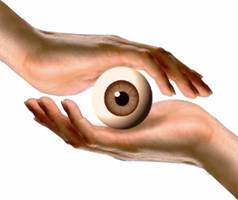
Bachelor in Optometry - B.Optom The course will lead to a basic degree in optometry, which is considered as the minimum essential for statutory registration of optometrists in countries where Optometry has been brought under legislation. Lotus College of Optometry is affiliated with prestigious state health University, Maharashtra University of Health Sciences, Nashik.
Duration of the course: 4 years comprising of 3 academic years of study and 1 year of clinical experience / internship.
The four year Bachelors course in optometry has the following aims and objectives.
1. To prepare a cadre of optometrists as primary eye care professionals by institutional education and clinical training. They can independently practice the profession and science of optometry in an optometry clinic, optical establishment or an eye hospital along with other medical professionals including ophthalmic surgeons.
2. To train optometry graduates who will be able to teach optometry at a school/college of optometry, take up further education and to research in ophthalmic field.
3. To train optometrists to independently perform the tasks of routine clinical eye examination including refraction, to detect any pathological disorders of the eye and system.
4. To train optometrists to independently prescribe all types of optical corrections including spectacles, contact lenses, low vision aids, vision therapy eye exercises.
5. To be able to satisfy the needs of the ophthalmic industry as a whole.
The recommended course of teaching will lead to a basic degree in optometry and would be considered as the minimum essential for statutory registration of optometrists in countries, wherever Optometry has been brought under legislation.
The syllabus aims at preparing an optometrist, who can practice independently or take up employment with an eye establishment. An Optometrist may independently manage an optical establishment or assist an ophthalmologist.
| Subjects | Faculty | No. Of Hrs. Theory |
| First Year | ||
| General Anatomy | Medical Faculty | 45 |
| General Physiology | Medical Faculty | 45 |
| General Biochemistry | Medical Faculty | 45 |
| Ocular Anatomy | Optometric Faculty | 60 |
| Ocular Physiology | Medical Faculty | 60 |
| Ocular Biochemistry | Optometric Faculty | 30 |
| Geometrical Optics I | Optometric Faculty | 60 |
| Geometrical Optics II | Optometric Faculty | 60 |
| Basic Computer | Basic Science Faculty | 15 |
| English | English Faculty | 15 |
| Nutrition | Optometric Faculty | 15 |
| Psychology | Psychology Faculty | 15 |
| Physical Optics | Physics Faculty | 60 |
| Clinical Optometry I | Optometric Faculty | 45 |
| Second Year | ||
| Visual Optics I | Optometric Faculty | 15 |
| Visual Optics II | Optometric Faculty | 30 |
| Ocular Diseases I. | Medical Faculty | 45 |
| Ocular Diseases II & Glaucoma. | Medical Faculty | 45 |
| Optometric Optics I | Optometric Faculty | 45 |
| Optometric Optics II | Optometric Faculty | 25 |
| Dispensing Optics | Optometric Faculty | 20 |
| Ocular Microbiology | Medical Faculty | 15 |
| Pathology | Basic Science Faculty | 15 |
| Pharmacology | Basic Science Faculty | 45 |
| Clinical Examination of Visual System | Medical Faculty | 30 |
| Optometric Instrumentation | Optometric Faculty | 30 |
| Indian Medicine & Telemedicine | Medical Faculty | 15 |
| Introduction to Quality & Patient safety | Medical Faculty | 30 |
| Clinical Optometry II & III | Optometric Faculty | 60 |
| Third Year | ||
| Contact Lenses I | Optometric Faculty | 60 |
| Contact Lenses II | Optometric Faculty | 60 |
| Binocular Vision I | Optometric Faculty | 30 |
| Binocular Vision II | Optometric Faculty | 45 |
| Occupational Optometry | Optometric Faculty | 15 |
| Low Visual Aids | Optometric Faculty | 30 |
| Paediatric Optometric | Optometric Faculty | 25 |
| Geriatric Optometry | Optometric Faculty | 20 |
| Systemic Diseases | Medical Faculty | 45 |
| Public Health Community Optometry | Optometric Faculty | 30 |
| Research Methodology | Optometric Faculty | 15 |
| Biostatistics | Statistician | 15 |
| Medical Law | Medical Faculty | 15 |
| Practice Management | Management Faculty | 15 |
| Clinical Optometry IV & V | Optometric Faculty | 60 |